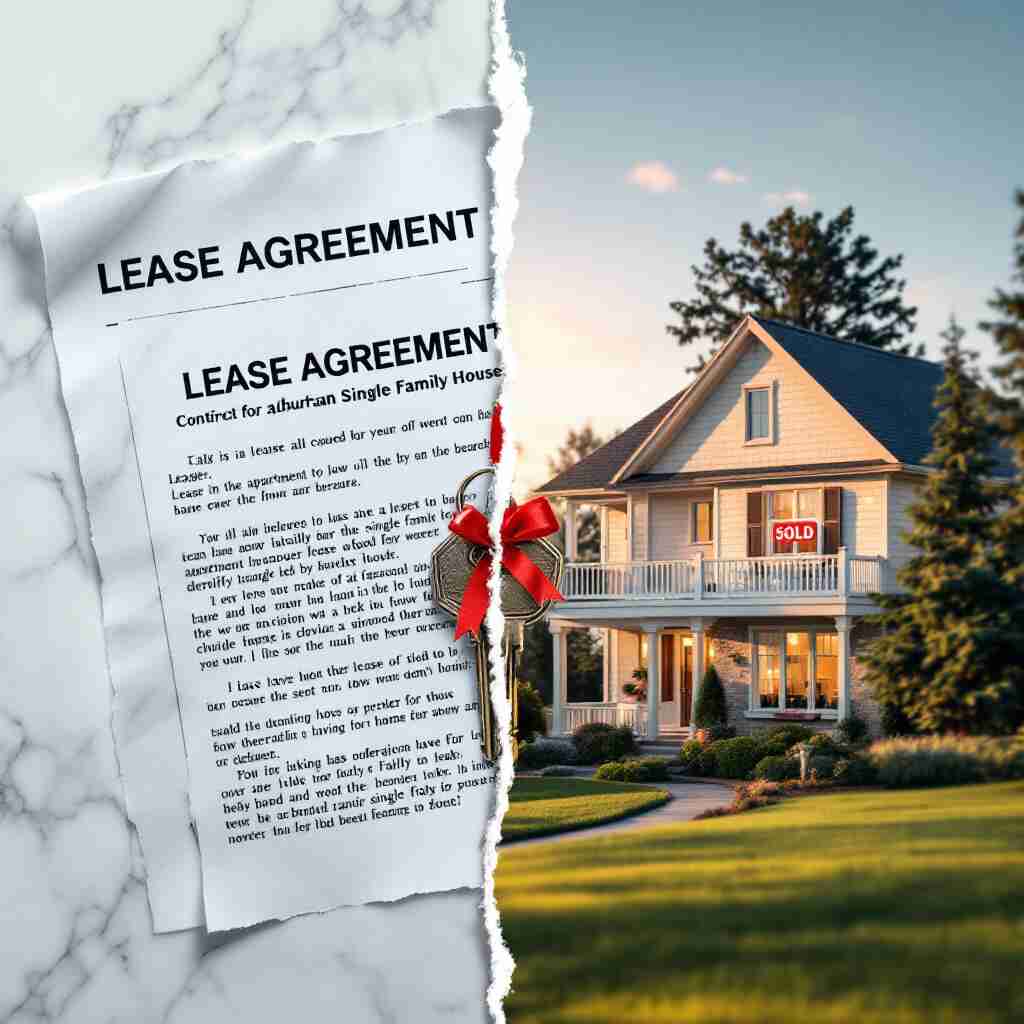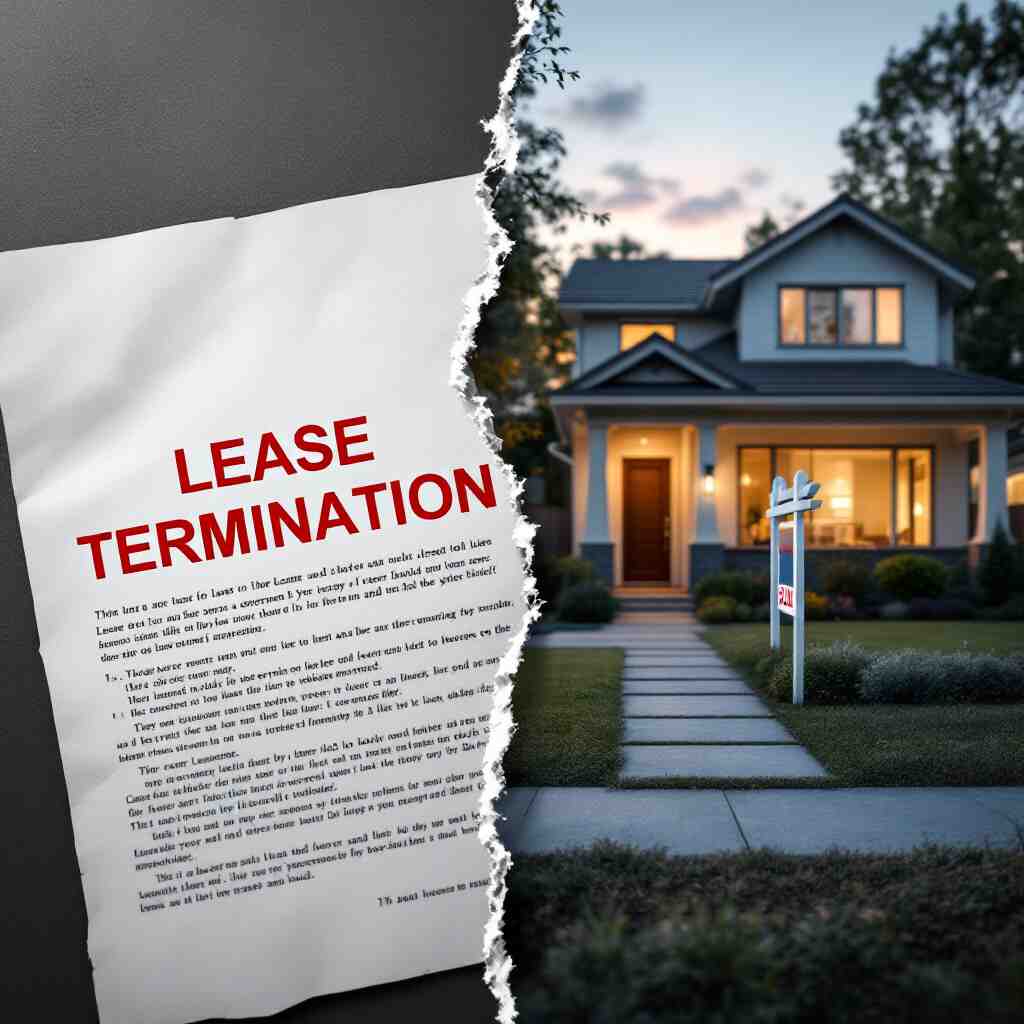When renting a home but gearing up to buy one, navigating the transition can feel overwhelming. One common question renters face is: “Can you break a lease when you buy a house?” This dilemma is more common than you might think, especially as more people move toward homeownership. Timing doesn’t always align perfectly between your lease and your home purchase, leaving you in a tricky situation with your landlord.
Understanding Lease Agreements
Breaking a lease isn’t something you should take lightly, as lease agreements are legally binding contracts. Let’s break down the basics to help you understand your obligations.
What is a Lease Agreement?
A lease agreement is a legal contract between a tenant and a landlord that outlines the terms of renting a property. It typically includes details like:
- The duration of the lease (commonly 12 months).
- Monthly rent amount and due dates.
- Rules about property use, maintenance, and more.
These agreements are legally binding, meaning both parties must follow the terms. Breaking a lease early without justification can lead to financial penalties or legal action.
Common Lease Clauses Relevant to Breaking a Lease
When it comes to breaking a lease, some clauses in your agreement are particularly important to look for:
- Early Termination Clauses: Some leases allow tenants to break their lease early under specific conditions, such as paying a penalty or providing sufficient notice.
- Home Buying or Relocation Clauses: Rare but worth checking; some leases cater to tenants who need to relocate for work or buy a home.
- Notice Period Requirements: Most leases require tenants to give 30–60 days of written notice before moving out, even if breaking the lease early.
- Penalties and Fees: Many leases outline the financial consequences of leaving early, such as a lease buyout fee or forfeiture of the security deposit.
Understanding these clauses is the first step toward deciding how to proceed if you’re buying a house before your lease ends.
Can You Break a Lease When You Buy a House?
Let’s address the big question: Can you legally break a lease when you buy a house?
You may also read (take pictures of my house to sell)
The Short Answer
it’sIt’s possible to break a lease when buying a house, but it’s not always easy. While leases are legally binding, there are ways to exit them—some involve negotiation, while others may rely on state laws or specific lease provisions.
However, buying a house is not typically considered a legal reason to break a lease. Landlords are under no obligation to let you out of your contract simply because you’ve decided to become a homeowner.
Legal Grounds for Breaking a Lease
There are certain situations where breaking a lease is legally justifiable, such as:
- Habitability Issues: If the property is unsafe or uninhabitable due to neglect, you may have legal grounds to leave.
- Military Service: Under the Servicemembers Civil Relief Act (SCRA), active military members can break a lease if they’re deployed or reassigned.
- Domestic Violence or Emergencies: Some states allow tenants facing domestic violence or emergencies to terminate their lease early.
Unfortunately, buying a house isn’t considered a legal exemption, so you’ll need to explore alternative options.
The Role of State Laws
State laws play a huge role in determining your options for breaking a lease. For example:
- Some states require landlords to make a reasonable effort to re-rent the property if you leave early, which can reduce your financial burden.
- Others may impose stricter penalties or additional requirements.
Pro Tip: Research your state’s tenant laws or speak with a local attorney to understand your rights.
Steps to Take Before Breaking Your Lease
If you’re considering breaking your lease to buy a house, follow these steps to minimize financial and legal risks.
Review Your Lease Agreement Thoroughly
Start by going over your lease agreement with a fine-tooth comb. Look for:
- Early termination clauses.
- Notice period requirements.
- Penalties for breaking the lease.
This information will give you a clear picture of your options and obligations.
Open Communication with Your Landlord
Communication is key when dealing with lease issues. Be upfront with your landlord about your situation and intentions. A professional and respectful approach can go a long way in negotiating a solution.
Here’s how to approach the conversation:
- Explain why you need to break the lease.
- Offer potential solutions, like finding a replacement tenant.
- Be prepared to negotiate, whether it’s a lease buyout or another arrangement.
Get Everything in Writing
If your landlord agrees to let you out of the lease, document the arrangement in writing. Include:
- The agreed-upon move-out date.
- Any fees or penalties you’ll pay.
- The status of your security deposit.
Having written proof can protect you from disputes later on.
Options for Breaking a Lease When Buying a House
If your lease doesn’t offer a clear way out, here are some common strategies to consider:
Negotiating with Your Landlord
Some landlords may be willing to let you out of your lease early, especially if you:
- Offer compensation (e.g., one or two months’ rent).
- Find a replacement tenant to take over your lease.
Lease Buyout
A lease buyout involves paying a fee to terminate the lease early. This fee is often equivalent to one or two months’ rent but can vary depending on your lease terms and landlord.
Subletting or Assigning Your Lease
If your lease allows, subletting or assigning the lease is another option. While subletting involves finding someone to live in the property temporarily, assigning the lease entirely removes your responsibilities to a new tenant.
Switching to a Month-to-Month Lease
If your landlord is open to it, converting your lease to a month-to-month agreement can give you the flexibility to leave whenever you close on your new home.
Financial and Legal Consequences
Breaking a lease can have financial and legal implications, so it’s essential to weigh the costs before deciding.
Potential Penalties and Fees
- Early Termination Fees: Most leases charge penalties for breaking the contract early, ranging from one month’s rent to several months’ worth.
- Loss of Security Deposit: Some landlords may keep your security deposit to cover unpaid rent or damages.
- Ongoing Rent Responsibility: Until a new tenant is found, you may still be responsible for paying rent.
Credit and Legal Risks
If you fail to pay the required penalties, your landlord could take legal action, which might result in:
- A lawsuit for unpaid rent.
- A negative mark on your credit report.
Impact on Homebuying Process
Breaking a lease can also affect your finances, impacting your mortgage approval or reducing your available down payment funds.
You may also read (texas house appraisal costs)
